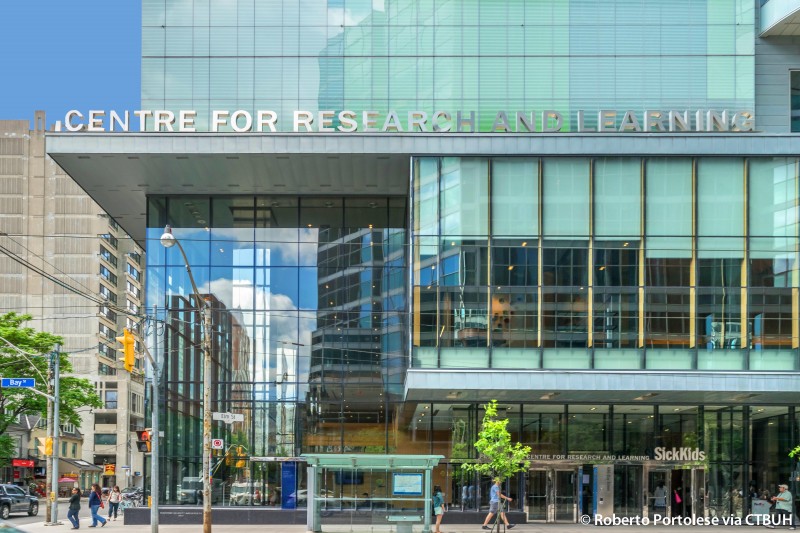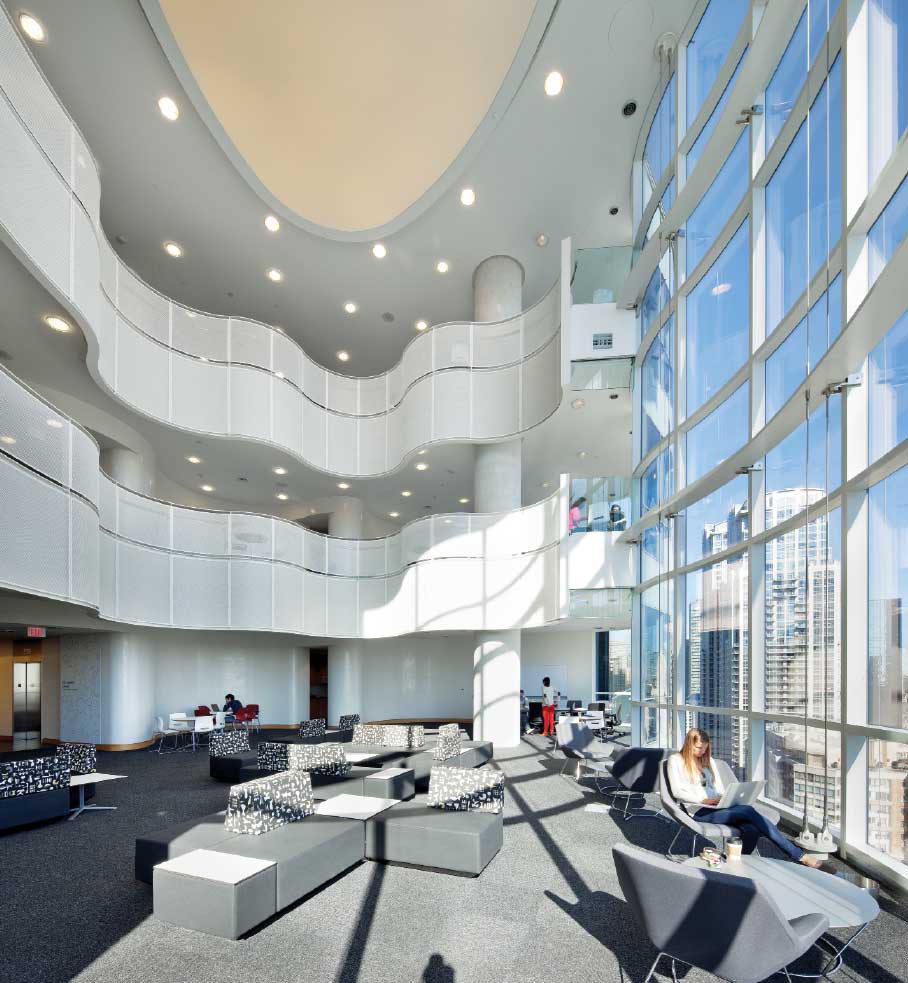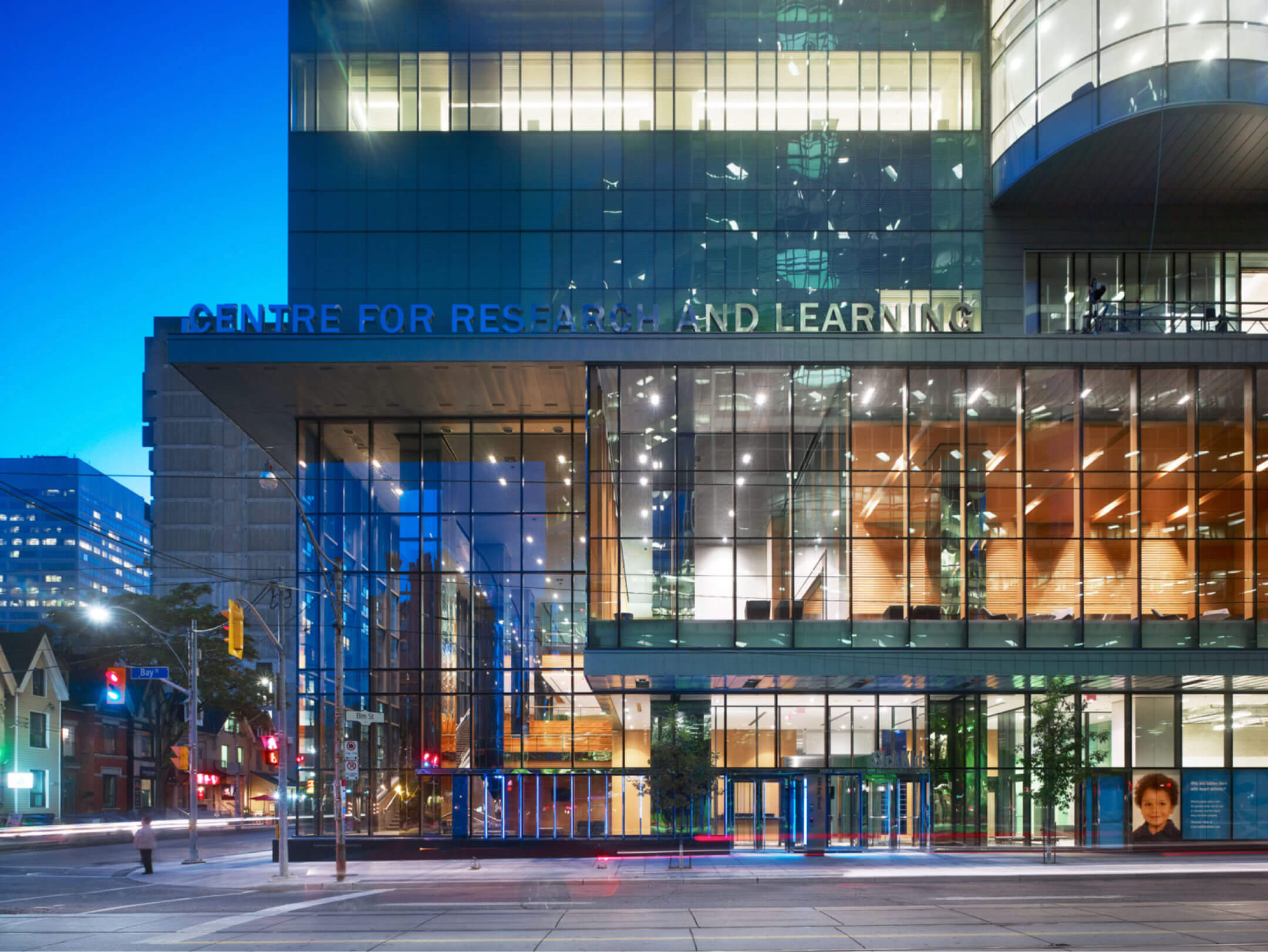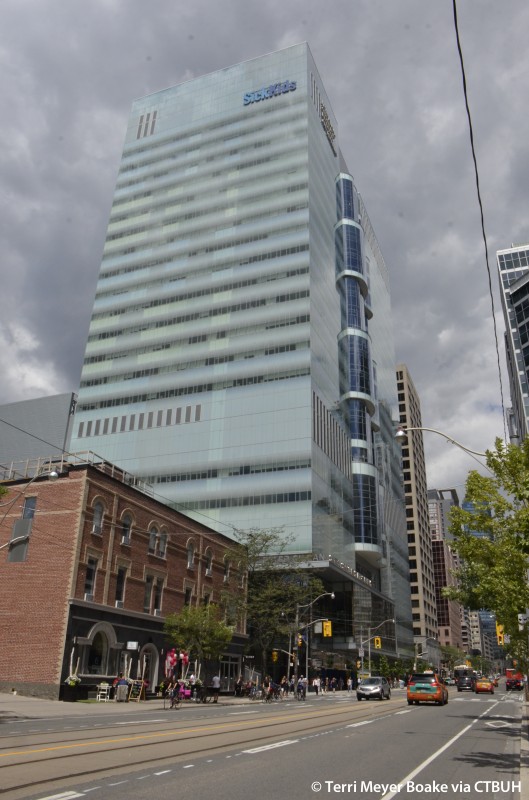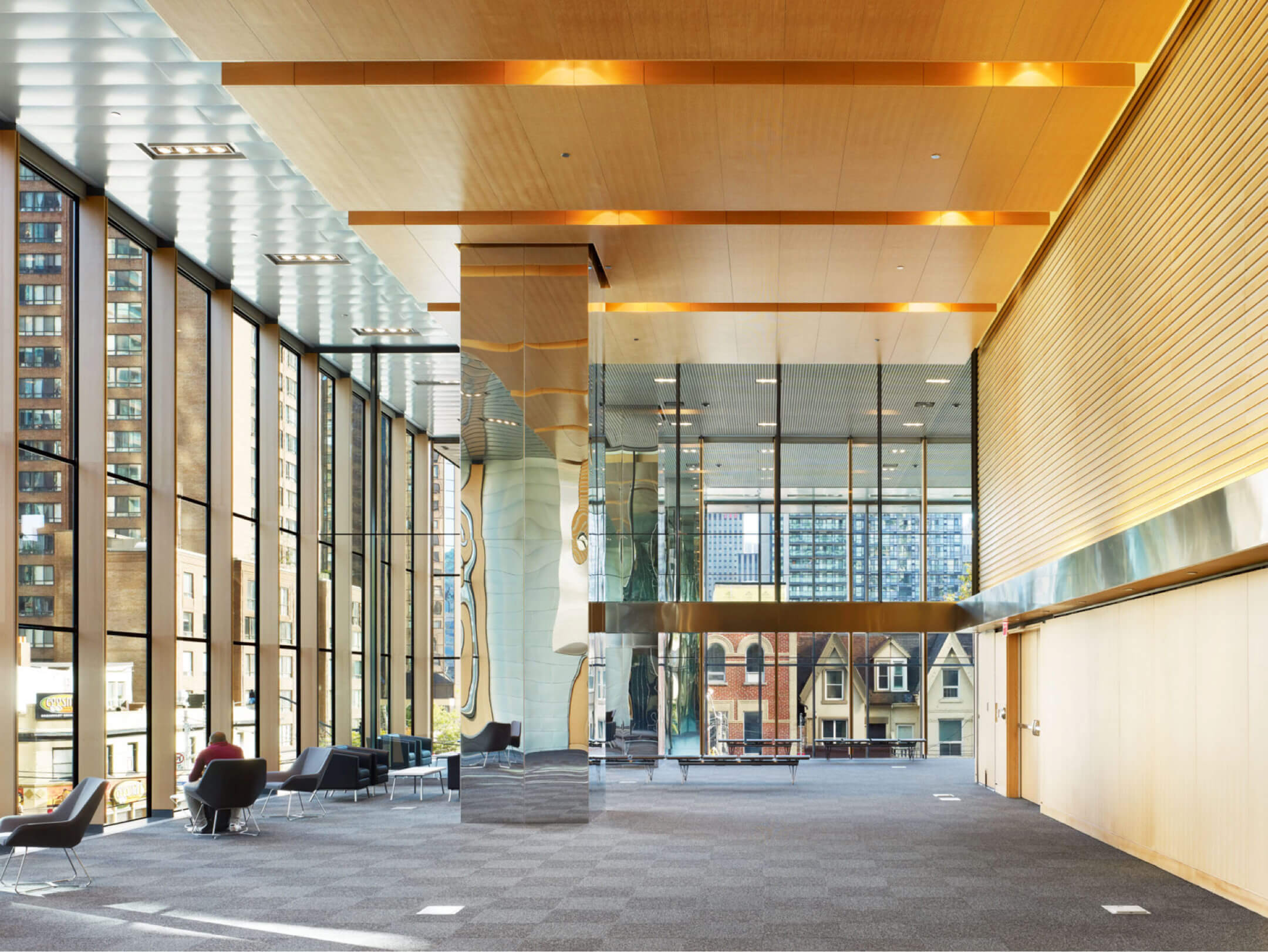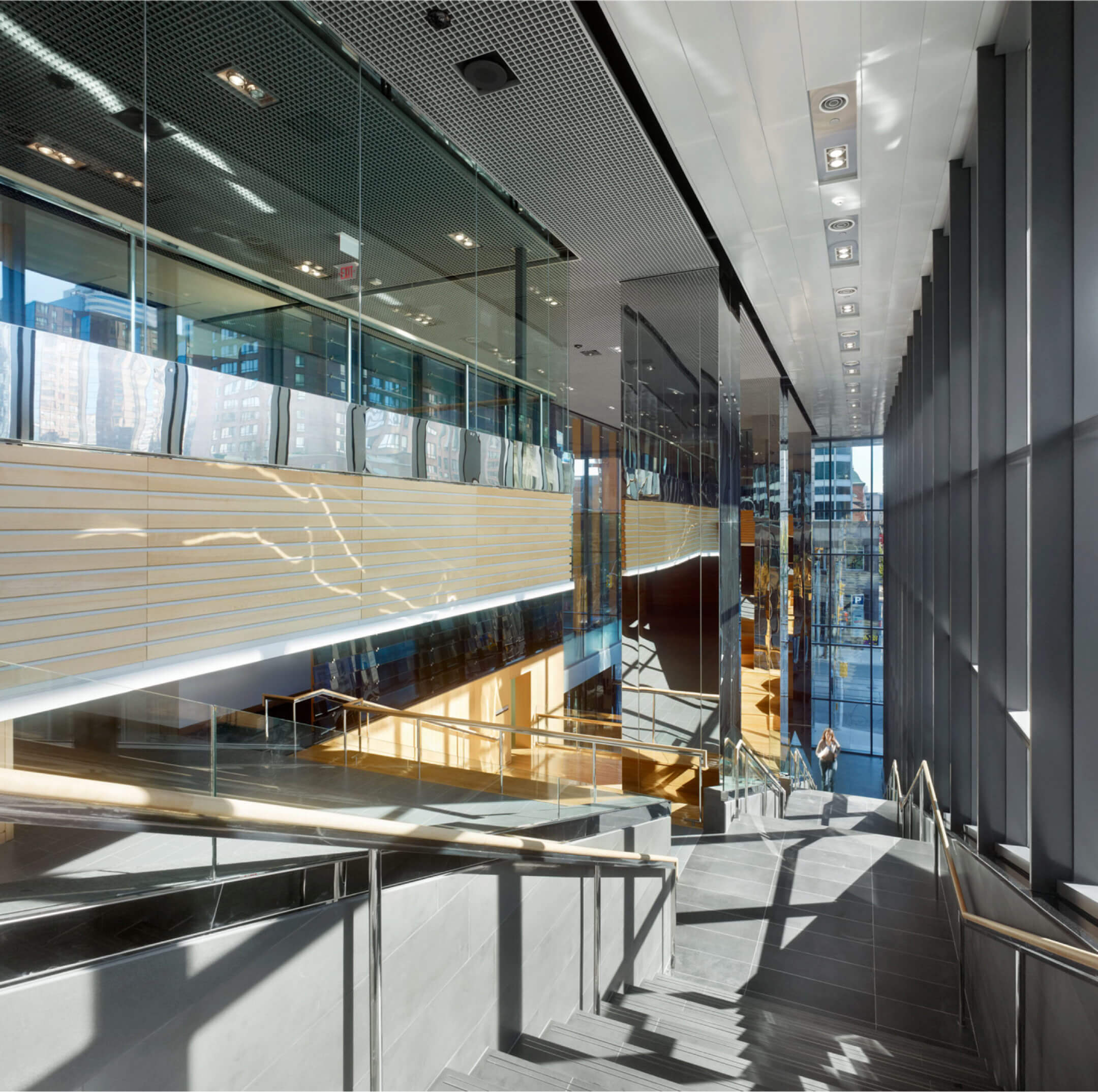Peter Gilgan Centre For Research And Learning

Toronto's skyline is punctuated by architectural marvels, but few structures embody the spirit of innovation and advancement quite like the Peter Gilgan Centre for Research and Learning (PGC). This towering edifice, a hub for groundbreaking medical research, recently marked a significant milestone, prompting a renewed focus on its contributions to healthcare and scientific discovery.
The PGC, located at 686 University Avenue in downtown Toronto, serves as the research arm of The Hospital for Sick Children (SickKids). It is not just a building; it is a dynamic ecosystem where scientists, clinicians, and trainees collaborate to tackle some of the most pressing health challenges facing children globally.
The Centre opened its doors in 2013, after years of planning and construction, representing a substantial investment in pediatric research. Its design and functionality are specifically tailored to foster collaboration and accelerate the translation of research findings into tangible benefits for patients.
A Hub for Scientific Discovery
The Peter Gilgan Centre for Research and Learning is home to over 2,400 researchers, trainees, and support staff. These individuals represent a diverse range of disciplines, including genetics, genomics, cell biology, immunology, neuroscience, and population health.
The Centre’s laboratories are equipped with state-of-the-art technology, enabling researchers to conduct cutting-edge studies on a wide array of pediatric conditions. These include cancer, heart disease, diabetes, autism, and infectious diseases.
"The PGC is a world-class research facility that is helping us to attract and retain the best and brightest minds in pediatric research," stated Dr. Ronald Cohn, President and CEO of SickKids, in a recent statement. "It is a critical component of our mission to provide the best possible care for children and families."
Key Research Areas
One of the PGC’s strengths lies in its multidisciplinary approach to research. Scientists from different departments collaborate on projects, bringing their unique expertise to bear on complex problems.
Genomic medicine is a major focus, with researchers working to identify the genetic causes of childhood diseases and develop personalized therapies. Advanced imaging techniques are also employed to visualize biological processes at the cellular and molecular levels.
The Centre is also actively involved in clinical trials, testing the safety and effectiveness of new treatments for various pediatric conditions. These trials provide children with access to cutting-edge therapies that may not be available elsewhere.
Impact on Healthcare
The research conducted at the Peter Gilgan Centre for Research and Learning has had a significant impact on healthcare. Findings from studies conducted at the Centre have led to new diagnostic tools, improved treatments, and better prevention strategies for a variety of childhood diseases.
For example, researchers at the PGC have made significant contributions to the understanding of childhood cancer, leading to the development of more effective therapies with fewer side effects. They have also identified genetic markers that can predict a child's risk of developing certain diseases, allowing for early intervention and prevention.
The Centre's research has also informed public health policy, leading to changes in screening guidelines and vaccination programs. This has resulted in improved health outcomes for children across Canada and around the world.
A Collaborative Environment
The design of the PGC is specifically intended to promote collaboration among researchers. Open-concept laboratories, shared meeting spaces, and informal interaction areas encourage scientists from different disciplines to connect and exchange ideas.
The Centre also hosts regular seminars, workshops, and conferences, bringing together researchers from around the world to discuss the latest advances in pediatric research. This creates a vibrant intellectual environment and fosters a culture of innovation.
The SickKids Learning Institute, also housed within the PGC, provides training and mentorship opportunities for young researchers. This helps to ensure that the next generation of scientists is well-equipped to tackle the challenges facing pediatric healthcare.
Looking to the Future
The Peter Gilgan Centre for Research and Learning continues to evolve and adapt to the changing landscape of medical research. New technologies and approaches are constantly being incorporated into the Centre’s research programs.
Future plans include expanding the Centre’s research capacity in areas such as artificial intelligence and machine learning, which have the potential to revolutionize the diagnosis and treatment of childhood diseases. The PGC also aims to strengthen its partnerships with other research institutions and industry partners.
As SickKids moves forward with its ambitious plans, the Peter Gilgan Centre for Research and Learning will undoubtedly remain a vital force in driving progress in pediatric healthcare, offering hope and a better future for children facing health challenges.
